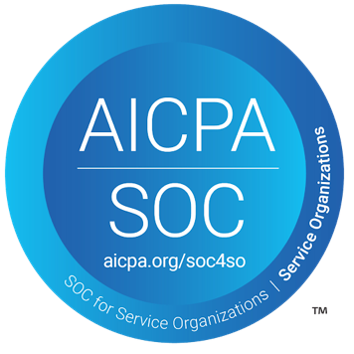Invoice Factoring vs. Invoice Financing: Differences, Pros, and Cons

“Top line sales are amazing, but your cash conversion is equally important. That’s where the money is,” according to an MDM whitepaper about accounts receivable (AR). You’ve likely seen this in your own business. Sales are booming, but money feels tight due to unpaid invoices.
For example, a wholesaler might offer 60- or 90-day payment terms to customers but have to pay suppliers upfront, leading to a cash flow gap and the need for accounts receivable financing.
In this guide, take a closer look at invoice factoring vs. invoice financing, including key differences, how they work, and pros and cons. Plus, review alternate funding options.
Invoice Factoring vs. Invoice Financing: What Are the Key Differences?
While these terms sound like they could be interchangeable, invoice factoring and invoice financing are actually different funding solutions. Both cover cash flow issues from accounts receivable delays, but the similarities end there.
The key differences between invoice factoring and invoice financing are:
Control of receivables: With factoring, you sell your outstanding accounts receivable to an invoice factoring company. With invoice financing, you maintain control of the invoices and simply borrow against the value of the invoices.
More funding upfront: You might receive more of the invoice amount upfront from financing than from factoring. With factoring, the average advance rate is 70-90%, but it might be more or less depending on your industry. With financing, the average advance rate is 80-95%.
Fees: While fee structures will vary, a factorer keeps 2-6% of the invoice value. In some cases, the fee will depend on how long it takes a customer to pay their bill. That means you could end up paying a higher fee if a client submits a late payment. An invoice financing company keeps 1.5-3% of the invoice value and may also charge a service fee.
Customer relationships: With factoring, a third party becomes involved in your customer relationships, which means they may not treat customers the way you would. With financing, you maintain control of the customer relationship and experience. They will have no knowledge of your financing agreement.
What Is Invoice Factoring, and How Does It Work?
With invoice factoring, you sell outstanding invoices to a factoring company in exchange for funding. Essentially, you receive a portion of the invoices’ value upfront, and the factoring company takes over the payment collection process. Once your customer’s payment comes through, you’ll receive the remaining balance minus a factoring fee.
There are two types of invoice factoring services:
Non-recourse factoring: With this type of factoring agreement, the provider takes on the risk. If the customer doesn’t pay their invoice, they absorb the cost.
Recourse factoring: With recourse factoring, you’re held responsible for any invoice payments that aren’t received. You’d need to repay the cash advance to the factoring provider and try to collect a late payment from your customer.
Pros of Invoice Factoring
Quick access to cash: Compared to some financing options, invoice factoring is relatively fast. On average, you can receive funding in 4-5 days.
Lower credit scores and startups accepted: Usually, factoring companies are more concerned with your clients’ credit history than yours, since that’s who they’ll rely on for repayment. If the credit check step has kept you from getting other funding, you might have a better chance of being approved for invoice factoring.
Cons of Invoice Factoring
High fees: Invoice factoring can be expensive, and if the fees go up based on how long it takes your customers to pay, it’s hard to predict the overall cost.
Loss of control: When you sell invoices to a third party, you give up control of customer data and experiences. This could expose your customers to security risks or erode their trust in your company.
What Is Invoice Financing, and How Does It Work?
Invoice financing — also known as invoice discounting — is when you borrow money against your accounts receivable. Instead of selling your invoices, you maintain control of them but use them as collateral to receive immediate cash. You’re then responsible for repaying the financing company.
Pros of Invoice Financing
Maintain control of customer relationships: Since you’re borrowing against your invoices rather than selling them, you don’t have to give up control of your customer relationships. You’ll know all communication and policies will be up to your standards.
Lower fees than factoring: Invoice financing fees are usually lower than factoring fees, which means you get to keep more of the invoiced amount.
Cons of Invoice Financing
Funding amount limited by current receivables: Your potential borrowing amount is limited by your outstanding accounts receivable. If you need more funding than that, invoice financing might not be the right option for you.
Concentration limits: To manage risk, invoice financing companies might have concentration limits. Essentially, that means there’s a maximum amount you can borrow against one customer’s invoices. Let’s say the provider has a 15% concentration limit, and you have $150,000 in outstanding invoices. You’d only be able to borrow up to $22,500 against each customer.
Alternatives Beyond Invoice Factoring and Invoice Financing
If you aren’t completely sold on invoice factoring or invoice financing, there are other funding options to cover cash flow problems. Look into term loans, business lines of credit, and B2B buy now pay later (BNPL) instead.
Term Loans
When we talk about term loans here, we don’t mean a traditional bank loan or SBA loan that can take weeks or even months to process. Instead, look for a working capital business loan from an online lender.
For example, Backd’s Business Term Loan* offers a lump sum of up to $1.5 million and terms extending up to 24 months. Your approved amount will be based on your creditworthiness and monthly revenue, not your accounts receivable, which might give you access to more financing. Plus, you’ll have predictable weekly or monthly repayments.
Business Lines of Credit
A business line of credit is a revolving financing solution, so you’ll have funds at the ready. It’s great for covering short-term cash flow gaps and payment delays because you’re granted a credit limit and can make withdrawals as needed.
Backd’s Business Line of Credit offers up to $1 million and terms up to 12 months. The application process** only takes a few minutes, and you can receive an offer in as little as six hours.***
B2B BNPL
Buy now, pay later is a great alternative to invoice financing and factoring. Instead of using your accounts receivable as collateral or giving up control of your customer relationships, you can offer your customers a new payment method.
For example, with BackdPayments, customers can access net 30 payment terms or choose to pay over time for up to 12 months. It’s a win-win situation because your customer is given flexible payment options, but you get paid upfront.
Invoice Factoring vs. Invoice Financing FAQs
Have more questions? Here are the answers to other common inquiries about invoice factoring and financing.
Is Invoice Factoring a Loan?
Invoice factoring is a type of financing, but it isn’t a loan. With a loan, you’re given a lump sum amount and make set monthly repayments. When you use invoice factoring, you receive a portion of your total invoice value upfront and then receive the rest (minus fees) when your client pays their invoice to the factoring company.
Which Is Cheaper: Factoring or Financing?
In most cases, invoice financing has lower fees and is cheaper than invoice factoring. Part of the reason invoice factoring fees are higher is because the provider takes on more risk and inherits the extra work of chasing down customers’ payments.
How Do Invoice Factoring and Invoice Financing Impact My Credit?
In most cases, invoice factoring and invoice financing won’t impact your credit report or score directly.
Generally, there are two ways financing can impact your credit:
From a credit check during the application process: Invoice factoring companies likely won’t run a credit check on you since they’re more concerned with your customers’ creditworthiness. It’s possible an invoice financing company will. However, only a hard inquiry will impact your credit score. Check with the provider before applying to find out.
If the lender reports to the credit bureaus: Usually, only revolving credit accounts and installment loans are reported to credit bureaus. Invoice factoring and invoice financing providers aren’t truly lenders, and the funds aren’t considered credit facilities or loans in the traditional sense.
Although invoice factoring and financing likely won’t have direct impacts on your credit, they may have indirect effects. Having the cash flow you need to pay other bills on time could help you build or improve your credit.
Get Flexible Accounts Receivable Financing
When you’re waiting on accounts receivable to clear, you can experience a cash flow gap. Funding solutions like invoice factoring and invoice financing can help, but each one has pros and cons. Look into other, more flexible options, such as term loans, business lines of credit, or B2B BNPL.
Backd offers all three. With BackdPayments, extend net 30 terms to your customers through buy now, pay later financing — without having to wait for funds to roll in. For your own financing needs, consider Backd’s Business Term Loan or Business Line of Credit.
Apply now and receive a funding offer within as little as 6 hours.
*Loans are decisioned and funded by one of Backd's lender partner banks.
**Your application, including the amount, cost, and approval, is subject to review and is not guaranteed. Terms and conditions subject to change without prior disclosure or notice.
***Decisions and funding may take additional time and not be same-day. Additional information may be required. Time to receive funds varies based upon your financial institution's receiving schedule and operating hours.

